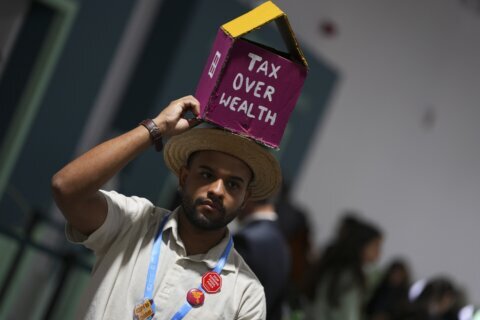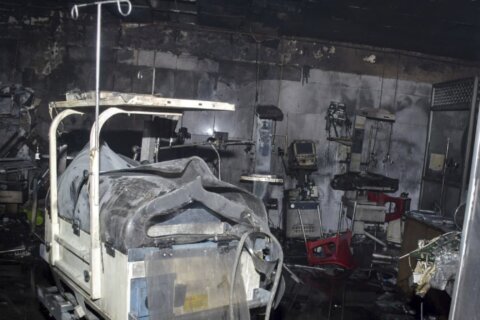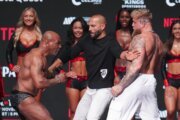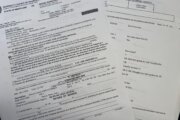LONDON (AP) — The son of jailed Hong Kong media mogul and prominent pro-democracy activist Jimmy Lai said Wednesday he did not want to see his father die in detention, as his lawyers raised the prospect that his long-delayed trial may be pushed back indefinitely.
Sebastien Lai also slammed the U.K. government for its “shameful” lack of action in helping his father, who is a British national.
Jimmy Lai, the 75-year-old founder of the now-defunct pro-democracy newspaper Apple Daily, has been in detention since he was arrested in 2020 under a sweeping national security law imposed by Beijing. The Hong Kong businessman faces up to life in prison if convicted. He has already been sentenced to five years and nine months in a separate case.
His trial was originally set to begin last December, but it has been delayed several times by judges. It is now due to start on Dec. 18.
His son Sebastien Lai, 28, and his lawyers have described the case as a “show trial.” They suggested that Hong Kong authorities may delay the trial date further not only because they have a weak case, but also because there is no benefit to them for Lai to air his views during a public hearing that’s expected to last two to three months.
Sebastien Lai, who has been travelling to the U.S., U.K., and the United Nations to lobby international leaders to help his father, criticized Britain’s government Wednesday for its muted language in condemning his father’s lengthy detention.
He also called the U.K. approach to China incoherent because while some government officials are speaking out against Beijing’s human rights record, others maintain it’s paramount to keep China on side as a trade partner.
“If they are willing to sacrifice human rights for trade I think it’s a big misstep,” Lai told reporters.
“I don’t want to see my father die in jail. He’s 75, he’s in prison, he does risk just dying. It is very worrying,” he added.
Caoilfhionn Gallagher, a London-based rights lawyer who is leading the Lais’ international legal team, said Foreign Secretary James Cleverly and Prime Minister Rishi Sunak have declined to meet with Sebastien Lai despite repeated requests.
“We’re seeing very mixed messaging from the government as a whole,” she said. “We think there’s an element of the U.K. government speaking out of both sides of its mouth — on the one hand it says something about Jimmy Lai’s case, and throws us some breadcrumbs, and on the other hand they take that away by pushing the message that it’s business as usual.”
Lai said he has not heard any fresh updates from the British government since Cleverly visited Beijing last month and raised his father’s case, among other topics, with his Chinese counterparts.
Jimmy Lai is accused of conspiring with others to call for international sanctions or engage in hostile activities against Hong Kong or China. He also faces a charge of collusion with foreign forces to endanger national security, and a separate sedition charge under a colonial-era law that is also increasingly used to subdue the opposition.
The tycoon and more than 260 others, including most of the city’s prominent pro-democracy leaders, have been arrested under the national security law as part of Beijing’s unprecedented crackdown on the city’s opposition.
His trial has been delayed for months, partly due to a legal tussle with Hong Kong authorities over whether Lai can hire a veteran British lawyer to defend him. The city’s High Court earlier upheld a government decision to bar the lawyer, Timothy Owen, from representing Lai.
Sebastien has not seen his father in three years, and only saw what he looked like recently when the Associated Press released exclusive photos of him being led out by guards for daily exercise inside a maximum-security prison.
“Some part of me was happy because he’s still the same … (but) it also reminded me of his age,” he said. “You never know what’s going to happen tomorrow at that age.”
___
Follow AP’s Asia-Pacific coverage at https://apnews.com/hub/asia-pacific
Copyright © 2024 The Associated Press. All rights reserved. This material may not be published, broadcast, written or redistributed.







